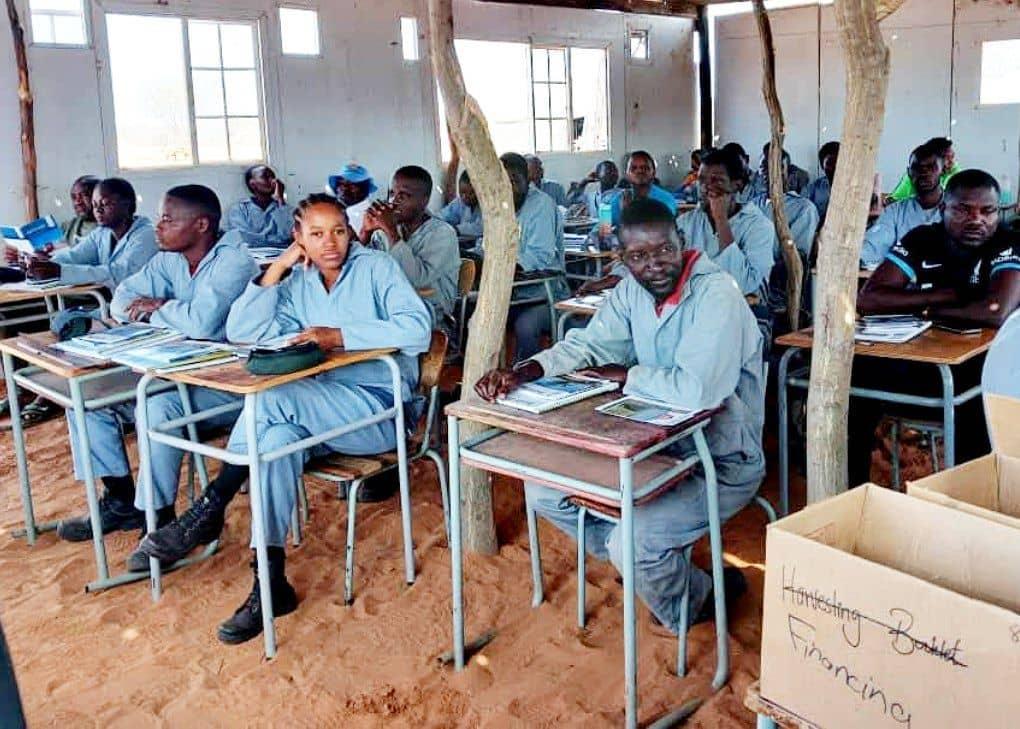Africa-Press – Namibia. The National Council Standing Committee on Education, Science, ICT and Youth Development has found shortcomings in projects funded through the 121 Constituency Youth Enterprises’ Initiative and Namibia Youth Credit Scheme.
The challenges relate to lack of oversight, funding and slow intake, among others.
The findings emanate from oversight visits by the committee in September last year.
This programme was established by the Ministry of Youth, Sports and National Service to address youth unemployment and foster economic growth through entrepreneurship.
The parliamentary committee visited youth projects the in Erongo, Kunene, Omusati, Oshana, Ohangwena and Otjozondjupa regions from 15 to 28 September 2024.
The visits were to enable the committee to assess the youth projects and to acquaint itself with the achievements and potential challenges hampering the success of these youth empowerment initiatives.
Each youth project was intended to consist of between five and 10 unemployed young individuals from the respective constituency, supported by local councillors and trained in project and basic finance management.
However, to the Parliamentary Committee stated that, the constituency councillors are not actively involved with youth projects to provide support and guidance.
The committee, chaired by Olivia Tuyenikelao Hanghuwo, found that the councillors are only contacted once there are challenges encountered with either the beneficiaries or the ministry.
“Beneficiaries are not adequately trained to manage businesses, particularly in financial management and bookkeeping, given that most of them may not have advanced further studies in education,” reads part of the report.
The committee noted lack of coordination and supervision, as well as monitoring and evaluation of these projects.
The shortcoming, the report said, is partly from the ministry in ensuring the funds are disbursed to beneficiaries accordingly, and revolved to assist other youth programmes.
The ministry acknowledged the shortcomings and committed to address the issues.
The committee further found a slow rollout of the 121 youth enterprises, as only 28 constituencies have benefitted so far.
The ministry cited funding as the major challenge.
The model of grouping (five to 10) young people to work together on a project may not be effective, as the committee found that some beneficiaries are not serious, and uncooperative.
This leads to some losing interest and abandoning projects, making it difficult for the remaining beneficiaries to operate the business successfully.
“Most beneficiaries are dissatisfied with the lack of support and services from the implementing agent, Nantu-Likwafela. There are some delays in the payment of loans by Nantu-Likwafela, and some projects still have outstanding dues to be paid by the implementing agent,” found the committee.
The delay in the payment of loans has negatively affected some projects, resulting in the late commencement and/or in beneficiaries abandoning the businesses for greener pastures.
Furthermore, some implementing agents the ministry contracted for the 121 Constituency Youth Enterprises and the Namibia Youth Credit Scheme lack capacity.
“Some agents do not even have offices (briefcase-based), and some are based in Windhoek, and it is difficult for beneficiaries to access them,” the report said. The committee found that the government does not have the capacity to facilitate these funding initiatives and, therefore, the need to contract a private implementing agent to facilitate the loans and support beneficiaries.
“Most of the projects are struggling to repay the loans, as many of the businesses were not fully-funded to operate at the level intended and as per the business plan,” the committee found.
It added that while some projects have started paying back the loans, they are paying less than they are supposed to because of various challenges, including lack of office or operating space, forcing some to operate from rented premises.
The committee also found that some projects are still incomplete, and are awaiting final payments.
“Some business proposals were not funded according to their proposal because their initial funding request was reduced, and this affected the operation of the projects,” the committee added.
The report said some projects showed potential for mishandling of funds, and raised concern and the need for the financial books to be audited.
For More News And Analysis About Namibia Follow Africa-Press






